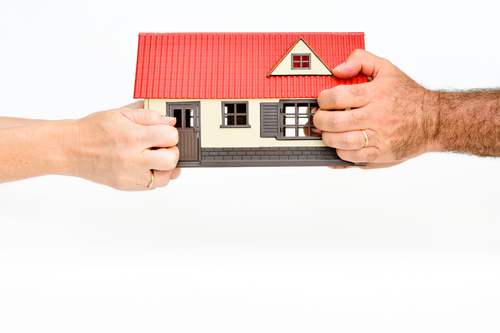When it comes to dividing marital property, the home is usually the most controversial part of the equation.
Some properties already logically belong to one individual or the other, like the car you use every day or your personal items. And savings accounts and 401(k)s can be divided. Unfortunately, getting half a house wouldn’t really be worth much!
But it’s more than the monetary value of the home; it’s the emotions you attached to the place.
For those with kids, one parent may want the home to keep things more consistent and familiar for them. Or you may have spent years in that home, improving it, furnishing it, and caring for it; the idea of just giving it up can be painful.
Some don’t like the idea of downsizing. Coping with all the work involved in a move – searching, packing, selling old items – just sounds exhausting.
But while staying put exactly where you are can be very appealing, you should take the time to consider if it really is your best move.
Homeownership can be expensive.
That home comes with a mortgage, property tax, utilities, home insurance, maintenance, and repair costs. By keeping the home, you may be making life more stressful since you’ll have to deal with the same financial obligations at a time when your income has decreased.
Consider if renting an apartment or downsizing to a smaller home might make more sense for you now that your income has been reduced. Yes, it will take some work in the beginning, but it may save you from far worse financial stress in the long run.
Consider the capital gains tax.
This isn’t an issue for all couples, but with home prices on the rise around the country, it is important to think about.
If you sell your home while still legally married, you can exclude $500,000 in capital gains before owing tax on the profit. However, if you keep the home but decide to sell it later while single, you can only exclude $250,000 in capital gains. That can be a difference of tens of thousands of dollars in some cases.
Look at what you’re giving up.
Some people give up savings, investments, and retirements just to keep the house. The unfortunate consequence is that they struggle to pay for their day-to-day living expenses or won’t have a comfortable retirement as a result.
Ask yourself if it is really worth it. If you have kids, it is likely that changing your home won’t be the biggest thing they have to get used to, and there are many other ways to keep their life consistent and familiar – friends, family, school, extracurriculars, and your loving presence.
And after all, you transformed your current house into a home – you can do it again!

Leave a Reply
Be the First to Comment!